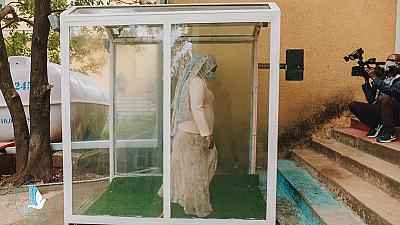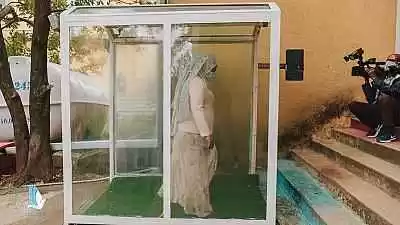

Last updated on September 11th, 2021 at 02:42 pm
Since the arrival of COVID-19 on the continent on February 14 in Egypt, there has been multi-layered concerns by experts and governments from fears of health systems being overwhelmed to the continent being muscled out of critical virus supplies.
Hydra-headed ‘doom’ predictions
But also in the midst of all the concerns were projections of an accelerating virus and how it could impact millions by way of infections and claims tens of thousands of lives. The World Health Organization, WHO, Africa head said the virus could affect 29 to 44 million people.
WHO scientists said in mid-May said 250 million people could contract the virus in a year. Before that, a modeling group convened by WHO, UNAIDS also highlighted ripple effects of the virus in treating other illnesses like AIDS and Tuberculosis.
One can also point out at the economic implication and ramification as a number of African countries demanded bilateral and multilateral loans to help deal with the virus. The United Nation’s Economic Commission for Africa, ECA; in a report said millions of jobs were on the line.
Africa’s race to provide for itself logistically
In other quarters, Africa was lacing its boost to meet the logistical challenges that the virus presented. From rapid test kits to Personal Preventive Equipments, PPEs; ventilators, masks, hand washing set ups etc. innovators got to work.
Whiles the immediate areas of importance remained the developing of rapid test kits and PPEs, the area of hand washing facilities, masks with visors and sanitizers became common place in many parts of the continent.
Inside the ‘tainted’ disinfection tunnels
One other piece of innovation that gained currency in Africa are the disinfection tunnels.
Their installation and use in different parts of Africa began to spread very rapidly be it at public or private facilities. Their main purpose it is largely advocated is as a preventive measure for persons who walked through them.
One of the latest institutions to join the production line is the University of Osun, UNIOSUN in Nigeria’s southwest. The university said its mechanical sanitizing cubicle was a contribution to combating the virus.
Professor Labode Popoola, vice-chancellor of UNIOSUN said the university has the capacity to mass produce the cubicle for organisations that needed it for easy sanitising process without fear of people having to use their hands.
Despite such ‘academic’ claims, a number of medical experts flagged their efficacy and propriety, but that has done little to deter outfits that had employed their use and development. Then the African Union’s Africa Centers for Disease Control and Prevention (Africa CDC) issued a report on the tunnels.
The report co-authored with the Infection Control African Network (ICAN) said: “… direct spraying of humans with chemical disinfectant or exposing them to UV-C in “Disinfection Tunnels” is not recommended.”
Their concerns touched on a number of areas including that: the use of these chemical disinfection sprays, or tunnels exposed people to ultra-violet rays.
That the exact chemicals used in the process could have effects on other parts of the body. They stressed that the practice of spraying human beings was extremely dangerous as chemical disinfectants were designed for use on hard surfaces.
The report, which is now unavailable on the Africa CDC site thus discouraged the use of ultra violet rays. It continued that there was no evidence that the use of the tunnels and or spraying of human beings reduced transmission of any infectious diseases including COVID-19.
The Oklahoma City Thunder secured their tenth consecutive victory by beating the Chicago Bulls 145-117. This victory raised their season…
Rob Walter Resigns his Position as coach for the Proteas men's team for white-ball games because personal problems needed attention.…
Starting April 2, South African drivers will get lower costs when filling their tanks as fuel prices decrease for all…
The U.S.-based driver training company Zutobi analyzed road safety worldwide and found South Africa stays last in driving danger since…
The Basketball Africa League (BAL) returns for its 2025 season with exciting changes and developments. Since 2019 the NBA-linked basketball…
The Somali president supports their military forces to eliminate the threats from Al-Shabaab, ISIS, and Al-Qaeda. The Somali National Army…
This website uses cookies.